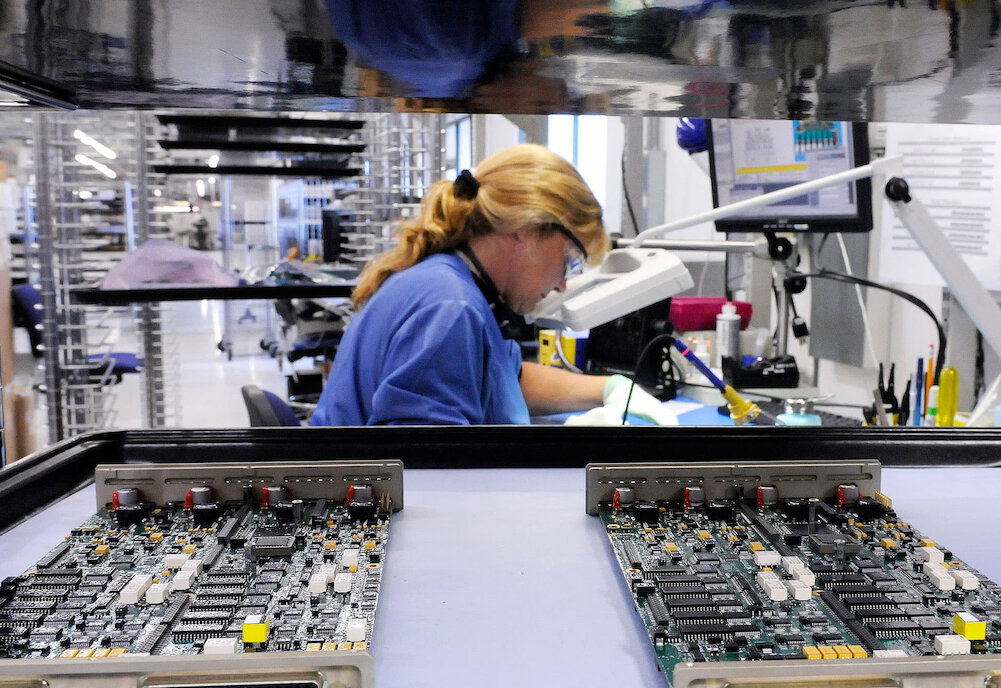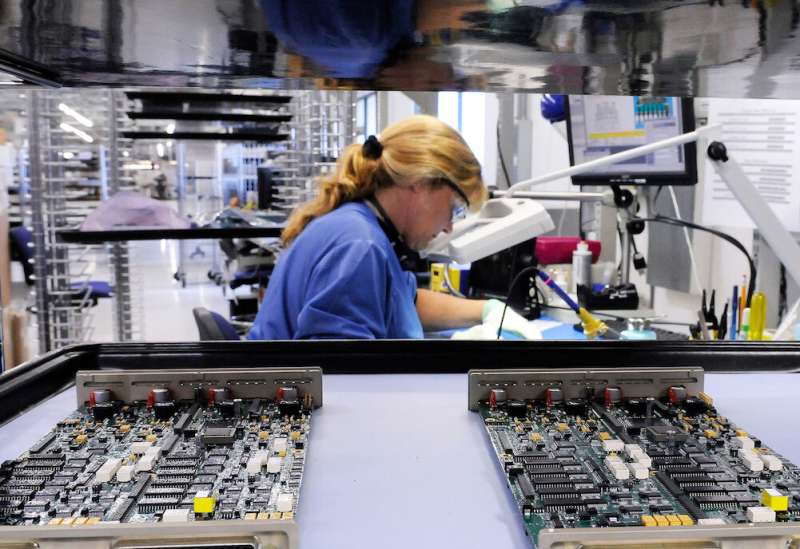

A joint project between the USF Supply Chain Innovation Lab and global manufacturer Jabil has concluded that it’s good business to have a more visible supply chain network.
An overwhelming percentage of the company’s international network of customers and suppliers said they would support a system where they could log in and see the status of orders, check on the levels of raw materials, and get a peek into where the product is within the complex production process.
These were the main conclusions from a one-year project, “Forging the Pathway for Jabil’s Digital Supply Chain Transformation,” which looked at whether the company’s users valued an “end-to-end supply chain visibility” system.
“The need for end-to-end visibility, actionable data and intelligence, and immediate availability is changing business models and is challenging existing supply chains to do more than simply keep up. For mid- and large-sized enterprises, spreadsheets and other traditional applications can no longer do the job. That’s why we’ve been so focused on delivering on supply chain visibility at Jabil,” said John Caltabiano, senior vice president, global supply chain, for Jabil’s EMS segment.
Researchers from the USF Supply Chain Innovation Lab and industry executives from Jabil coordinated the study, which concluded in December 2021.
Among the study’s big takeaways:
- An overwhelming majority of survey respondents—95%—agreed that “end-to-end supply chain visibility” is important to their business.
- Another 92% of customers and suppliers surveyed believed that “end-to-end supply chain visibility” would greatly improve customer satisfaction.
Seckin Ozkul, assistant professor of instruction in supply chain management and the director of the USF Supply Chain Innovation Lab at the USF Muma College of Business was the principal investigator of the study. “Through this study, we were able to determine that both Jabil’s customers and suppliers want to see the implementation of end-to-end supply chain visibility and they value it greatly,” he said.
Ozkul worked with Alison Watkins, a professor in the School of Marketing and Innovation on the St. Pete campus, who was the co-principal investigator for the study. Ozkul said expanded visibility would require more data sharing between Jabil and its customers and suppliers to have a “perfect view” of the supply chain. “A high percentage of respondents stated that this will not only make them happy, thus increasing their customer satisfaction with Jabil, but it will also increase their customer loyalty to the company,” he said.
Ozkul said Jabil’s supply chain system allows customers and suppliers the ability to see when something is shipped. A more visible system would allow users to place an order and see where that product is within the order cycle and monitor how much of the product has been produced, he said. As a result, a digital end-to-end supply chain visibility system would allow customers to plan better and reduce costs, Ozkul said.
Watkins added, “It was a great opportunity for the USF Supply Chain Innovation Lab research team to get an external view of Jabil’s full supply chain from suppliers to customers.”
It is the first major study undertaken by researchers in the USF Supply Chain Innovation Lab, housed in the Muma College of Business, since the lab launched in July 2020. The lab was the direct result of the USF-Jabil Innovation Institute partnership, announced in October 2019.
“We at Jabil are excited about our innovative partnership with USF. As leaders in our respective fields, we believe that the outcomes of our projects not only provide a great outcome for the students and the industry, but also assist Jabil in our goal to be the most technologically advanced and trusted manufacturing solutions provider,” said LaShawne Meriwether, vice president of talent, diversity & community at Jabil.
The lab harnesses expertise from industry, higher education, and public agencies to solve global supply chain management challenges.
Caltabiano praised the partnership with USF. “Today’s digital economy demands a new approach to manage the entire supply chain ecosystem—a solution that leverages advanced technologies and immense collaboration. Our partnership with USF is another great example of supply chain’s importance and provides students awareness and insights into this exciting field,” he said.
Moez Limayem, the USF Muma College of Business Lynn Pippenger Dean, agreed. “Our partnership with Jabil is a great example of how industry and academia can join forces to serve an employer’s needs while giving students the opportunity for impactful research and strategic thinking,” he said.
“This collaboration is a positive for everyone, not only for students, who are at the forefront of supply chain management industry research, but also for our partner and the industry as a whole who can benefit from the outcomes of the research conducted,” Limayem said.
The Florida High Tech Corridor is an economic development initiative among three research universities—the University of Central Florida, the University of South Florida, and the University of Florida. The Corridor’s Matching Grants Research Program at USF fosters applied research between the region’s high-tech industry partners, and top-rate faculty and student researchers.
“As the supply chain industry grows globally and within the Tampa Bay region, building relationships between the university and local industry is crucial,” said Elizabeth Nelson, USF’s Florida High Tech Corridor program director. “We are proud to support Jabil’s ongoing collaboration with USF’s Muma College of Business. Not only does it provide tangible impact to the company, but it allows our students to apply what they’ve learned in the classroom to the real-world scenarios and connect with one of our region’s leading employers.”
Two USF Master of Science in Supply Chain Management graduate students also contributed to the study, which gave them real-world experience in the supply chain management industry and helped them receive multiple job offers upon graduation. They both accepted jobs in the Tampa Bay area within the supply chain management field.
Hydropower supply chain deep dive assessment: Report
University of South Florida
Citation:
Study recommends widening visibility of supply chain network for customers and suppliers (2022, May 6)
retrieved 6 May 2022
from https://phys.org/news/2022-05-widening-visibility-chain-network-customers.html
This document is subject to copyright. Apart from any fair dealing for the purpose of private study or research, no
part may be reproduced without the written permission. The content is provided for information purposes only.